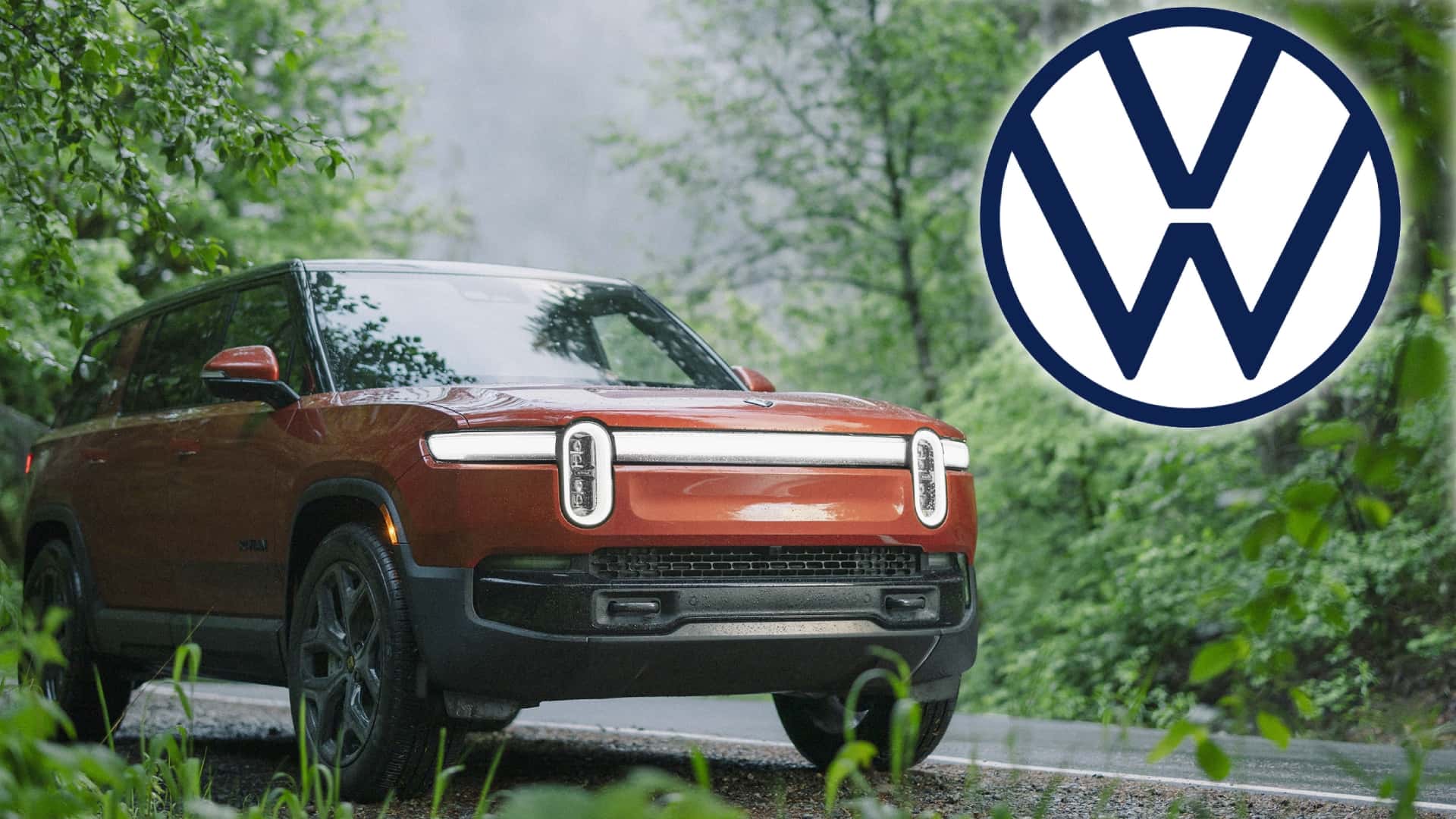
VOLKSWAGEN AND RIVIAN ARE TEAMING UP ON SOFTWARE IN $5 BILLION DEAL
The California startup gets a big cash pile, and Volkswagen gets the expertise it needs to solve some long-running tech problems.
Rivian and Volkswagen are teaming up to create software for their future electric vehicles, the two automakers said Tuesday in a surprise announcement that includes a VW investment of up to $5 billion in the American startup automaker. Both companies are running into very different challenges ramping up their EV businesses, and the deal looks like it could be a win-win.
Under the terms of the deal, Volkswagen will invest an initial $1 billion in Rivian and plans to invest another $4 billion later on. Rivian will share its expertise on building software and electrical architectures—which are showcased in its recently revised R1 vehicles—and is expected to "license existing intellectual property rights to the joint venture," according to a press release.
"Both companies aim to launch vehicles benefiting from the technology created within the joint venture in the second half of the decade," the two companies said in a joint statement. "In the short term, the joint venture is expected to enable Volkswagen Group to utilize Rivian’s existing electrical architecture and software platform."
While the two companies are technically competitors, the tie-up addresses areas where both find themselves deficient as the EV race heats up.
The Volkswagen Group, one of the world's largest carmakers, is excellent at churning out millions of cars a year across its many brands and selling them for a handsome profit. But, like other legacy manufacturers, it's struggled with software.
Old-school carmakers are all looking to integrate more software into their vehicles, enabling them to fix bugs, update features or sell you stuff with a simple software update. Volkswagen's efforts to build new vehicle software and the electrical architecture it runs on have been delayed and fraught; it cleaned house at Cariad, its software division, last year.
Rivian, meanwhile, is widely regarded for its software and user experience. EV startups have the benefit of being able to develop things from scratch, and Rivian has apparently benefited greatly from that flexibility. What it lacks is money.
A few years into selling cars, the California-based startup is still unprofitable. And it needs to stay above water until it can ramp up production of its upcoming mass-market vehicle, the R2 SUV, in 2026. Today, Rivian sells the relatively expensive R1T pickup and R1S SUV.
Those can't sustain the kind of sales volume Rivian needs to cross the so-called "valley of death" and enter the promised land of financial health. The VW deal may serve as a badly needed financial cushion as Rivian scales up to the day when it can achieve mass-production and hopefully long-term stability.
"The partnership’s ambition is to accelerate Volkswagen Group’s SDV plans and transition to a pure zonal architecture," the news release added. "Each company will continue to separately operate their respective vehicle businesses."
What do you think of this partnership? Let us know in the comments below.
Contact the author: [email protected]
More EV News
2024-06-25T21:47:57Z dg43tfdfdgfd